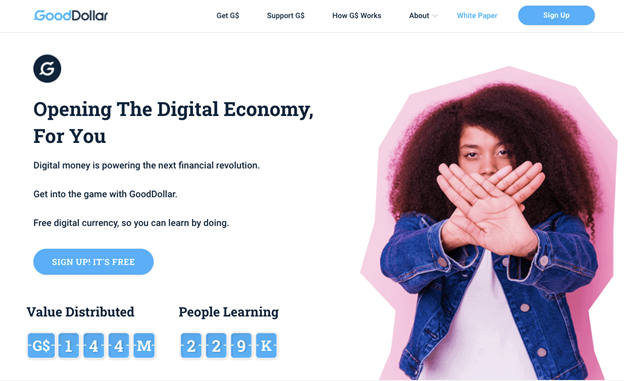- August 26, 2021
- Posted by: admin
- Category: BitCoin, Blockchain, Cryptocurrency, Investments
Amidst the rising problems with their native fiat currencies, whether hyperinflation or excessive volatility, many populations throughout third-world nations are opting for cryptocurrencies as a viable alternative.
The warp-speed growth of Bitcoin, Bitcoin Cash, and other cryptocurrencies across regions lagging economically, primarily stems from innovative initiatives undertaken by several crypto brands to boost and promote financial inclusion, making it easier and convenient for the locals.
As the use of smartphones and the internet is increasing rapidly across third-world countries, innovative crypto-backed solutions are spearheading the efforts to give more control to users. This ongoing effort will further democratize finance and impact the lives of billions of people who until now had no access to financial services and solutions.
Crypto Brands Lower The Barriers For Individuals & Businesses
During the Covid-19 pandemic, there was an overall decrease in unbanked populations throughout the world. However, not many have benefited from this development, primarily due to the hefty costs involved in fiat and crypto transactions.
To cater to these problems, fintech and crypto startups are making significant strides. Take, for instance, the not-for-profit fintech brand hi. Owned and operated by the Singapore-based hi Foundation, hi leverages blockchain technology to offer community-powered services. The platform enables users to send and receive fiat and crypto through social messaging platforms like Telegram and Whatsapp without a bank account.
Given the number of mobile users is snowballing, hi is on a mission to bring financial inclusion through mobile accounts and already boasts more than 1 million token holders. The hi wallet is linked to the user’s mobile phone account, and funds from the wallet can be used to pay for goods and services. The platform also allows its users to earn interest, send and receive funds globally without exorbitant fees. In addition, the platform also offers daily rewards (HI tokens) to its users, referral rewards, and several other benefits.

Another similar crypto-based project leading the unbanked revolution, offering a free and easy way for users to access financial services, is GoodDollar. The platform aims to lower the widening gap within the crypto and digital asset space by providing a universal basic income (UBI) to billions of people worldwide. This blockchain-based income distribution model is autonomous, sustainable, transparent, and is run via smart contracts. The GoodDollar protocol leverages free-market forces and embraces social investing principles to create a stream of free digital currency sent directly to users’ phones, assuring a more inclusive digital economy.
Backed by leading cryptocurrencies, GoodDollar allows everyone to earn from its platform. To further accelerate its expansion into Latin America, the platform has partnered with US-based fintech BitMinutes to help this population exchange their G$ (GoodDollar’s native token) for BitMinute mobile phone minutes. A global digital marketplace for commerce has also been created by the GoodDollars community, with over 40,000 users offering thousands of items for sale worldwide.
As cryptocurrencies continue to gain mainstream status across several third-world countries, there is a growing need for state-of-the-art solutions that enable people to maximize their digital assets. However, the decentralized finance ecosystem isn’t easy to navigate, especially for users with a limited understanding of blockchain and cryptocurrencies.

This is where not-for-profit brand Popcorn Network makes a huge impact, enabling users to earn revenue while lowering crypto’s carbon footprint. Popcorn Network allows global users to simply connect their Metamask wallet to its platform, allowing them to pick from the listed products and strategies, earn competitive returns, and be a part of the green-crypto revolution.
The platform has designed several yield-generating DeFi products and hedge-fund strategies, including claiming, staking, re-supplying, leveraging, and swapping cryptocurrencies. As a result, users can save time, reduce transaction fees, and generate yields without learning crypto strategies.
With the increasing adoption of smartphones and the rise of the internet in third-world countries, existing business models aren’t up to the mark. From data capping, sluggish performance, limited bandwidth, and surging data charges, most of the Latin American population still finds it challenging to use the internet to earn a stable income. With most traditional ISP’s following the pay-as-you-go model, many businesses and individual users find it extremely difficult to keep up with the charges, primarily due to the extended impacts of the ongoing pandemic.
All in all, the rise of not-for-profit crypto brands is the beginning of a new era of financial inclusion, which will impact the lives of billions of people from third-world countries, allowing them to partake in a flourishing crypto economy.